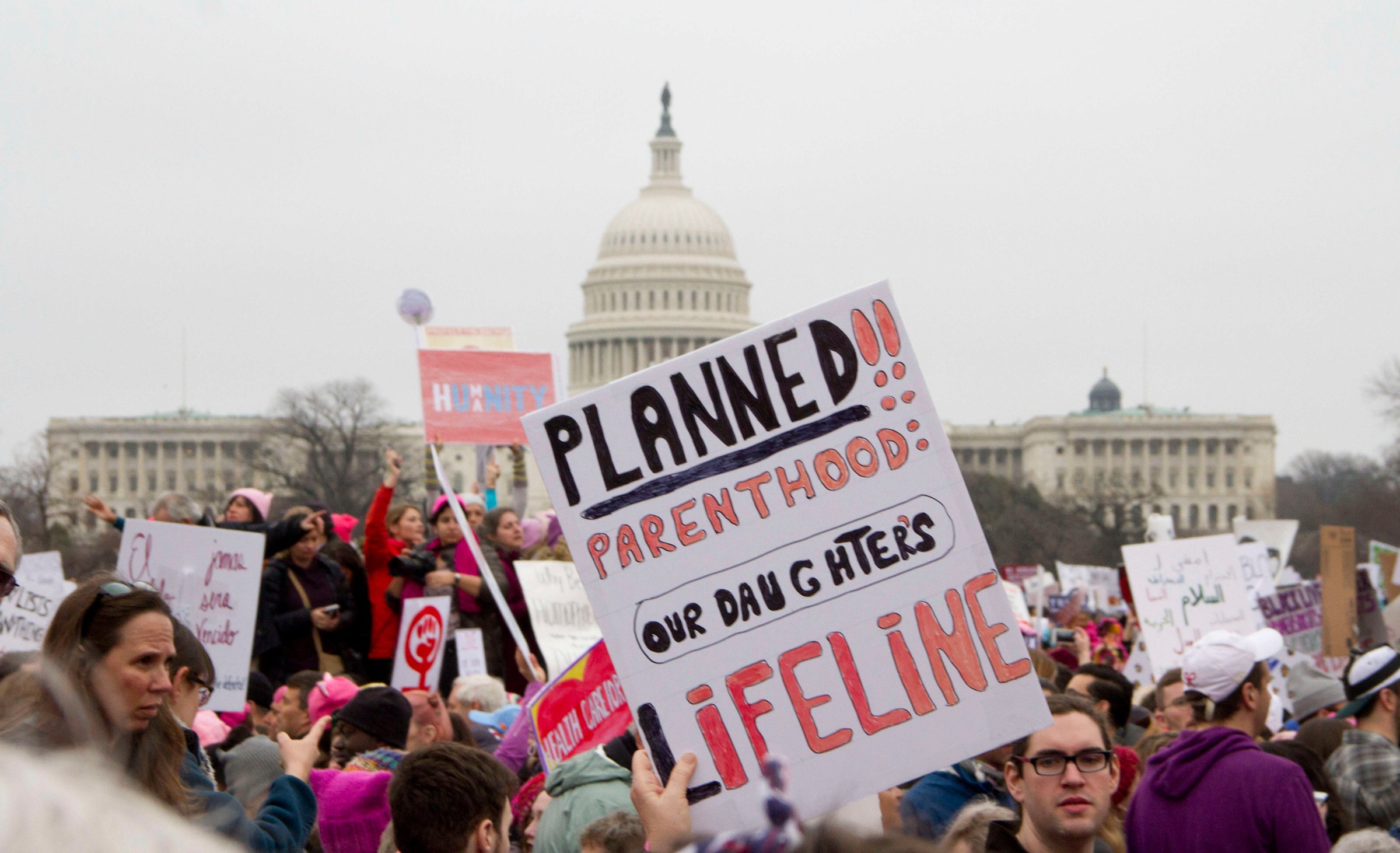
Put aside for a moment the Inauguration of President Donald Trump. Together, the Women’s March on Jan. 21 and the March for Life on Jan. 27 highlight a reality that isn’t going away: forty-four years after Roe v. Wade, the politics of abortion in America is more polarized and divisive than ever. Why?
Consider the about-face by the Women’s March. No event in our time has been heralded as more diverse and inclusive of women everywhere — until an antiabortion group called New Wave Feminists took the marchers at their word and tried to join ranks. They got the boot. “The Women’s March’s platform is pro-choice, and that has been our stance from day one,” the excluders explained.
Which means that now, in 2017, support for abortion has become so central and nonnegotiable to today’s feminism and progressivism that some women’s groups aren’t allowed to officially join a women’s march that’s supposed to be for all women. And that’s just one instance of the extremes now dictated by new absolutism.
Consider the legacy of President Barack Obama. For two terms, his Administration gave teeth to the Democratic Party’s support of abortion rights. It made a priority of using existing regulations to penalize demonstrators outside abortion clinics. The contraception mandate arguably covering abortifacient drugs gave rise to hundreds of lawsuits, including by indigent nuns: witness the Little Sisters of the Poor, who became part of the Supreme Court case Burwell v. Hobby Lobby Stores. Capping off his record, on one of his last days in office, Obama finalized a rule that banned states from withholding Title X federal money from health clinics that provide abortion.
Like-minded absolutism has led groups like the ACLU to sue Catholic hospitals and otherwise work against charitable Christian organizations. Emergency pregnancy centers run by antiabortion groups — where women can get free medical advice and other help, as well as more prosaic aid like diapers and baby furniture — have also become targets of progressives. The ACLU has sued the U.S. Conference of Catholic Bishops over its work on the southern border. The Catholic Church is instrumental in alleviating humanitarian need there, but these days defending abortion trumps helping refugees.
This is a sea change for progressivism. Until the 1990s or so, nationally respected Democrats like Sargent Shriver and Robert Casey of Pennsylvania enjoyed good standing in the party without having to recant their pro-life stances. Other progressive leaders, both before and after Roe, could also oppose abortion, and did — among them Jesse Jackson (who later switched). Civil libertarian Nat Hentoff, who died in January, argued for a connection between civil liberties and the unborn. Reaching further back, many suffragists and early feminists also believed that abortion does women and children wrong — with Dorothy Day and Charlotte Lozier among them. If these champions for women were alive today, they would have been barred as formal partners in the Women’s March too.
Similarly, even yesterday’s champions of abortion rights weren’t nearly as uncompromisingly dogmatic as they’ve become. During the 2008 campaign, the recent Democratic standard bearer, Hillary Clinton, could call for making abortion “safe, legal and rare.” Such careful rhetoric was in keeping with reality. Yet by 2016, with its declaration of newly “unequivocal” support, the Democratic Party platform was agreed by all sides to be the most “progressive” in history — more supportive of abortion rights than ever before.
Until just a few years ago, progressives had a choice between their opinions on abortion and their opinions about everything else. Now they don’t. Will this choiceless stance prove acceptable to all people of the left, beyond coastal elites? Will today’s abortion-rights absolutism help the Democratic Party that progressivism calls home — or cleave it? Tomorrow’s elections may hinge in part on answers to just those questions.
Eberstadt is an essayist and the author of several books, including It’s Dangerous to Believe: Religious Freedom and Its Enemies and How the West Really Lost God: A New Theory of Secularization; earlier books include Adam and Eve After the Pill, Home-Alone America and the satire The Loser Letters.
More Must-Reads from TIME
- Cybersecurity Experts Are Sounding the Alarm on DOGE
- Meet the 2025 Women of the Year
- The Harsh Truth About Disability Inclusion
- Why Do More Young Adults Have Cancer?
- Colman Domingo Leads With Radical Love
- How to Get Better at Doing Things Alone
- Michelle Zauner Stares Down the Darkness
Contact us at letters@time.com